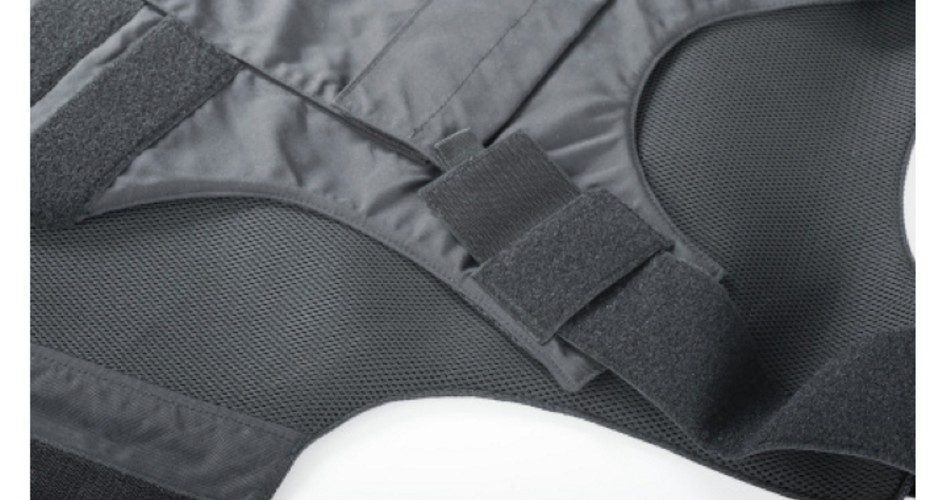
Representative Michael Honda (D-Calif.) introduced a bill in the House on July 31 that would prohibit the purchase, ownership, or possession of enhanced body armor by civilians. The bill offers exceptions for those whose purchase or possession of the body armor is authorized by the federal government or a state government or political subdivision of a state. Purchases of body armor made before the law takes effect are grandfathered and would not be held to be in violation.
The legislation also specifies that violations would be punishable by an unspecified (and therefore, unlimited) fine, imprisonment for not more than 10 years, or both.
Among the items the legislation would prohibit are not only the familiar Kevlar vests, but also a “helmet or shield, the ballistic resistance of which meets or exceeds the ballistic performance of Type III armor.” (Type III armor, by definition, protects against bullets traveling at approximately 2,780 feet per second.)
The bill, H.R. 5344, the “Responsible Body Armor Possession Act,” was cosponsored by Representatives Robin Kelly (D-Ill.), Bill Pascrell, Jr. (D-N.J.), and Alcee Hastings (D-Fla.)
Hastings was a judge on the United States District Court for the Southern District of from 1979 until he was impeached for bribery and perjury in 1988 and convicted by the Senate and removed from his judicial post in 1989. He is one of only eight federal officials in American history to be impeached and removed from office. He was elected to the House of Representatives in 1992.
Even if H.R. 5344 fails to pass, body armor is already regulated by the federal government. Under 18 U.S. Code, Section 931, it is unlawful for a person to purchase, own, or possess body armor, if that person has been convicted of a felony, i.e., an offense under state law that would constitute a crime of violence. An exception is made if the “defendant” (notice that a convicted felon possessing body armor is already considered to be a “defendant,” even if they have committed no further crimes) obtained prior written certification from his or her employer that the defendant’s purchase, use, or possession of body armor was necessary for the safe performance of lawful business activity.
A law in Connecticut — Public Act 98-127 — criminalizes any sale of body armor that is not done face to face, including online or catalog sales.
Body armor is also frequently listed among items of contraband in news articles about police raids.
Benjamin Woodard, who covers Chicago’s Far North Side for DNAinfo Chicago, wrote an article on October 14 about a police raid in the city’s Rogers Park neighborhood. His report began: “Police arrested two men and confiscated two assault rifles, a shotgun, ammunition, and body armor at a Rogers Park apartment last week, police said.”
While possessing body armor, per se, is legal in Chicago and the rest of Illinois, a person commits the crime of unlawful use of body armor when he or she wears body armor while carrying a dangerous weapon in the commission of any offense. Upon first violation, this crime is a Class A misdemeanor, but the classification is upgraded to Class 4 felony upon any further offenses.
In this particular case, one of the men arrested was charged with the unlawful use of a weapon by a felon and the other was charged with unlawful use of a weapon. The report did not state that the men were actually wearing the body armor while illegally possessing weapons, which according to the law, is a prerequisite for illegal possession of the body armor. If the body armor was simply stored in the apartment, there seems to be no more justification for seizing it than for seizing a ham sandwich found on the kitchen table.
An AP report on October 17 noted that police in Tulsa, Oklahoma, upon receiving a tip that a man was trafficking drugs from his residence, conducted a raid during which they seized $6,000 in cash, guns, more than 20 grams of methamphetamine, and body armor. The only charges filed against the man were possessing the drugs and possession of a firearm while committing a felony, i.e., possessing the drugs. It has historically warranted additional charges if a weapon was used in a violent crime such as robbery (upgrading the charge to armed robbery), but authorities now apparently regard the mere possession of a firearm that would otherwise have been legal, to be illegal if it coincides with a non-violent crime — even if it was not actually used in the commission of that crime. One wonders if a person found guilty of income tax evasion would receive enhanced charges if he had a gun in his closet while filling out his Form 1040!
In the Tulsa case, police seized not only the methamphetamine — the only item on the premises which, in and of itself, was illegal — but also the cash, the guns, and the body armor.
These reports caused this writer to speculate about one of his favorite TV shows, Castle, where the show’s leading character is a best-selling mystery novelist who uses his sleuthing skills to serve as a civilian consultant with the New York City Police Department. The novelist, Richard Castle, was assigned to assist NYPD homicide detective Kate Beckett, and often accompanies Beckett on police raids.
Since police department personnel wear Kevlar vests labeled with the letters “POLICE” front and back, Castle, who is a civilian, had his own vest custom made, adorned with the word “WRITER.”
Though the show is pure fiction, one wonders, if this were real life, and H.R. 5344 were to pass, if Castle would be in violation of the law by wearing his body armor. Maybe he might qualify for the exception loophole if Detective Beckett obtained official police authorization for him to wear his vest.
Failing that, he might also be fined $10,000 and receive a 10-year sentence. All for wearing protective gear that is purely defensive in nature and poses no harm to anyone.


